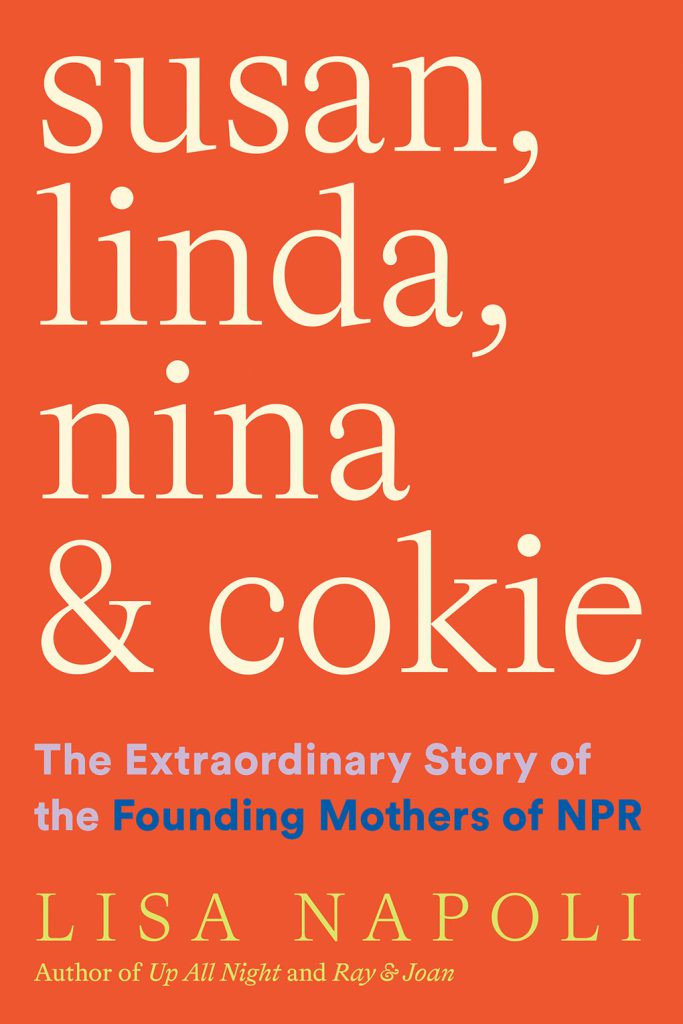This book was released to coincide with the 50th anniversary of NPR. After reading several biographies on Ruth Bader Ginsberg and Gloria Steinem, the gender discrimination incidents presented here were not revelatory; however, the history of each of the four women was worthwhile and interesting.
Their individual journeys to what their male counterparts contemptuously called the "Fallopian Jungle" (the female section of the newsroom) required tenacity and the willingness to work long hours learning on the job.Unfortunately, one sentence derailed my experience with this book and lead me down a rabbit hole of research. In July 1974, Nina Totenberg, “polled 200 hundred people on the Hill” to write a story called “The Dumbest Congressman.”
“Among the dumb? Sen. Roman Hruska from Nebraska was so dumb he’d actually said that ‘mediocrity deserves a seat on the Supreme Court’ (Napoli, 109). I’m uncertain if this next sentence was in Totenberg’s article or added by Napoli but the charge against Hruska continues “(two strikes: Hruska owned a chain of dirty movie theaters, yet had sponsored an anti-smut bill.)” (109). Regardless who is calling out Hruska’s hypocrisy, what piqued my curiosity was getting to the bottom of the theater question. A Nebraska senator owning what I would interpret as pornographic theaters was something I’d never learned in my Nebraska history. Trust, but verify. A New York Times article from 1970 titled “Rival Charges Hruska Peddles Smut” reveals there was more to the story:
In what may be the region’s bitterest election contest, Senator Roman L. Hruska of Nebraska, a noted opponent of violence and pornography, has been labeled a smut peddler and glorifier of brutality. The man who seeks to unseat him, former Gov. Frank B. Morrison, says the 66-year old Republican is using the screens of five drive-in movie theaters he partly owns in this area to show horror scenes in such films as The Blood Drinker and lewd situations in such works as Catch 22. Despite Senator Hruska’s continued explanation that he is merely an investor in a chain of Nebraska theaters and does not participate actively in the management (Mr. Morrison) continues to imply the Senator votes against pornography on the Senate floor but peddles smut in his theaters.” (Drummond Ayres Jr.)
An investor in several drive-in theaters definitely isn’t the same thing as owning a chain of dirty movie theaters. I called Kay Schmid, the director of the Roman Hruska Public Library. She provided the following political advertisement titled “At the Movies with Roman Hruska” published in the Columbus Telegram on October 30, 1970. The advertisement quotes Jack Anderson of the Washington Post and was paid for The Concerned Citizens of Nebraska:
When Senator Roman Hruska preaches about the evils of violence and pornography, he knows whereof he speaks. He is a partner in a movie chain that has recently featured skin flicks like Girl on a Chain Gang and violence like The Blood Drinker. The pious Nebraskan has sponsored numerous bills against smut and violence but Hruska’s “common decency and good morals” apparently do not impel him when his pocketbook is affected. The senator wouldn’t say how much he gets out of the Douglas Theaters, except that it is “making a profit.” Asked whether he would make a public accounting, the crusader for public morality said, “Heaven’s No! It’s none of the public’s business as long as there is no conflict of interest.” Senator Hruska incidentally voted against a Senate Standards of Conduct Amendment, which would have required Senators to report their sources of income.
However, it was amassed, Hruska’s fortune was enough to have a public library (David City), a federal courthouse (Omaha), and law center (Lincoln), named for him. You can draw your own conclusions about Hruska’s values, but Napoli or Totenberg’s throwaway sentence about “owning a chain of dirty movie theaters” is inflammatory and inaccurate. It left me wondering if Napoli made any other statements that might require fact checking.
Napoli, Lisa. Susan, Linda, Nina & Cokie: The Extraordinary Story of the Founding Mothers of NPR. Blackstone Publishing. 2021.


